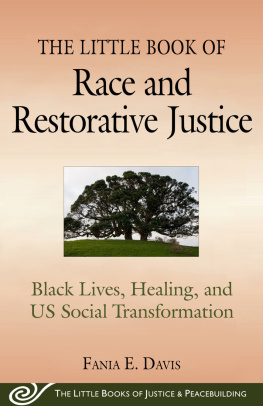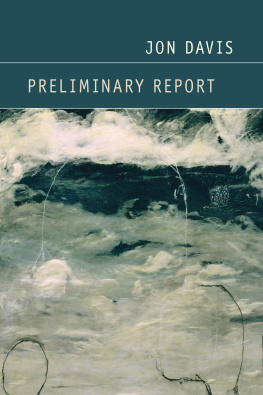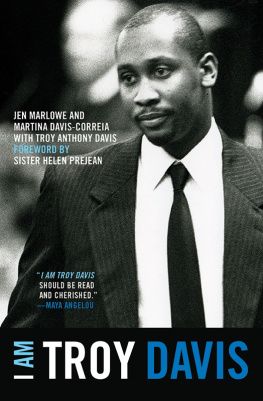Davis - Discretionary justice A Preliminary Inquiry
Here you can read online Davis - Discretionary justice A Preliminary Inquiry full text of the book (entire story) in english for free. Download pdf and epub, get meaning, cover and reviews about this ebook. City: Urbana, Ill., year: 1976, publisher: University of Illinois Press, genre: Politics. Description of the work, (preface) as well as reviews are available. Best literature library LitArk.com created for fans of good reading and offers a wide selection of genres:
Romance novel
Science fiction
Adventure
Detective
Science
History
Home and family
Prose
Art
Politics
Computer
Non-fiction
Religion
Business
Children
Humor
Choose a favorite category and find really read worthwhile books. Enjoy immersion in the world of imagination, feel the emotions of the characters or learn something new for yourself, make an fascinating discovery.

- Book:Discretionary justice A Preliminary Inquiry
- Author:
- Publisher:University of Illinois Press
- Genre:
- Year:1976
- City:Urbana, Ill.
- Rating:5 / 5
- Favourites:Add to favourites
- Your mark:
- 100
- 1
- 2
- 3
- 4
- 5
Discretionary justice A Preliminary Inquiry: summary, description and annotation
We offer to read an annotation, description, summary or preface (depends on what the author of the book "Discretionary justice A Preliminary Inquiry" wrote himself). If you haven't found the necessary information about the book — write in the comments, we will try to find it.
Davis: author's other books
Who wrote Discretionary justice A Preliminary Inquiry? Find out the surname, the name of the author of the book and a list of all author's works by series.
Discretionary justice A Preliminary Inquiry — read online for free the complete book (whole text) full work
Below is the text of the book, divided by pages. System saving the place of the last page read, allows you to conveniently read the book "Discretionary justice A Preliminary Inquiry" online for free, without having to search again every time where you left off. Put a bookmark, and you can go to the page where you finished reading at any time.
Font size:
Interval:
Bookmark:
DISCRETIONARY JUSTICE
A Preliminary Inquiry
JUSTICE
A PRELIMINARY INQUIRY
KENNETH CULP DAVIS
LOUISIANA STATE UNIVERSITY PRESS
BATON ROUGE
Copyright 1969, by
Louisiana State University Press
Library of Congress Catalog Number 69-12591
Manufactured in the United States of America by
Thos. J. Morons Sons, Inc.
If all decisions involving justice to individual parties were lined up on a scale, with those governed by precise rules at the extreme left, those involving unfettered discretion at the extreme right, and those based on various mixtures of rules, principles, standards, and discretion in the middle, where on the scale might be the most serious and the most frequent injustice? I believe that officers and judges do reasonably well at the rules end of the scale, because rules make for evenhandedness, because creation of rules usually is relatively unemotional, and because decision-makers seldom err in the direction of excessive rigidity when individualization is needed. And probably injustice is almost as infrequent toward the middle of the scale, where principles or other guides keep discretion limited or controlled. I think the greatest and most frequent injustice occurs at the discretion end of the scale, where rules and principles provide little or no guidance, where emotions of deciding officers may affect what they do, where political or other favoritism may influence decisions, and where the imperfections of human nature are often reflected in the choices made.
The question whether injustice is more common at the discretion end of the scale should be pondered in the light of another significant question: With which portion of the scale is research primarily concerned? This question has an obvious answer. The further we go toward the rules end of the scale, the greater the quantity of useful literature; the further we go toward the discretion end of the scale, the fewer the books and articles. Indeed, I know of no systematic scholarly effort to penetrate discretionary justice. Writers about law and government characteristically recognize the role of discretion and explore all around the perimeter of it but seldom try to penetrate it.
A few oversimplifications about the literature of jurisprudence, of public administration, and of administrative law can quickly sketch the general nature of the inadequacy of those bodies of literature with respect to discretionary justice: Jurisprudence misses many realities about justice because it is too much concerned with judges and legislators and not enough with administrators, executives, police, and prosecutors. Furthermore, jurisprudence acknowledges the law-discretion dichotomy and then spends itself almost entirely on the law half. Public administration writers, instead of observing, describing, and criticizing governmental processes, as I think they should do, hid their heads in the sand for several decades while denying that administration involved policy-making, and then they became preoccupied with trying to construct a value-free science of administration. That focus, happily, may be about to shift, for leaders in the field have asserted in a recent report: Efforts to make it [public administration] a science have run afoul of reality. The literature of administrative law is likewise singularly unhelpful to a study of discretionary justice, except peripherally here and there. Administrative law literature is devoted mainly to the 10 or 20 percent of administrative action that involves either formal proceedings or judicial review, and it largely neglects the 80 or 90 percent that escapes both formal proceedings and judicial review.
Doing the research needed for a developing legal system may be compared with keeping in repair an old roof of an enormous building. Our scholarly roof in its present condition is strange to behold. Most of it at the rules end is extremely strong, but portions at the discretion end have rotted away, leaving big holes where the water rushes in and does great damage. Only an occasional worker gives attention to the big holes, while the majority of workers swarm over the rules end, stopping or preventing slow leaks, and reinforcing at points where leaks seem impossible. The reinforcements are both excessive and spotty. The roof is a hundred feet thick in some spots, but these are the very spots that attract still more workers. Not much is attempted except patchwork, and that is one reason the workers ignore the big holes, many of which call for structural changes requiring architectural imagination.
For every new book that tries to do something about the big holes in the scholarly roof, a thousand seek to reinforce the portions that are already strong.
Of course, I do not mean to imply that I can repair the holes or even draw the blueprints for doing so. Although this essay does advance a number of proposals designed to improve our system of discretionary justice, I regard such proposals as incidental to my main purposes, which are (1) to dispel the virtually universal impression that discretionary justice is too elusive for study, (2) to open up problems that seem susceptible of further research and thinking, and (3) to formulate a framework for further study.
My hope is that this essay may induce some of the workers who are crowding the rules end of the roof to direct their talents to the areas of discretion that are so urgently in need of repair. The construction work that is needed will require many workers for many decades.
Acknowledgments. To Louisiana State University I am grateful for the gracious invitation to deliver the Edward Douglass White Lectures in April, 1966, and for the cordiality to my wife and me on that occasion from members of the LSU law faculty, including especially Dean and Mrs. Paul M. Hebert, Professor and Mrs. Melvin G. Dakin, and Professor and Mrs. Wex Malone. The lectures were an early version of what has gradually grown into this essay.
For valuable criticisms and suggestions, I am pleased to express my gratitude and my thanks
To four friends who have read the entire manuscript, Professor Walter Gellhorn of Columbia University, Professor Stanley Kaplan of the University of Chicago, Professor Frank Newman of the University of California (Berkeley), and Professor Victor Rosenblum of Northwestern University, who, when this is published, will have become president of Reed College.
To one friend who read the early version presented in the lectures, Professor Walter Blum of the University of Chicago.
To two friends who have read portions pertaining to criminal processes, Professor Norval Morris and Dr. Hans Mattick, director and associate director of the Center for Studies in Criminal Justice at the University of Chicago.
To five friends who have especially helped on problems of European law and practice, Professor Max Rheinstein of the University of Chicago, Dr. Ernst Pakuscher of the German Supreme Administrative Court, Professor Fritz Scharpf of the University of Constance, Professor Gerhard Casper of the University of Chicago, and Professor Peter Schlechtriem of the Universities of Chicago and Freiburg.
For assistance in summer interviewing in Washington, as well as for ideas and imagination, I am grateful to Professor Daniel Gifford of the State University of New York at Buffalo, Professor Clark Havighurst of Duke University, Professor Norman Abrams of the University of California at Los Angeles, and Professor Gerard Moran of Rutgers University.
For facts, ideas, confidences, and inspiration, I am indebted to innumerable government officers, probably several hundred, who have generously given their time and energy to answer questions and to contribute to my continuing education in the realities of the administrative process.
Next pageFont size:
Interval:
Bookmark:
Similar books «Discretionary justice A Preliminary Inquiry»
Look at similar books to Discretionary justice A Preliminary Inquiry. We have selected literature similar in name and meaning in the hope of providing readers with more options to find new, interesting, not yet read works.
Discussion, reviews of the book Discretionary justice A Preliminary Inquiry and just readers' own opinions. Leave your comments, write what you think about the work, its meaning or the main characters. Specify what exactly you liked and what you didn't like, and why you think so.















